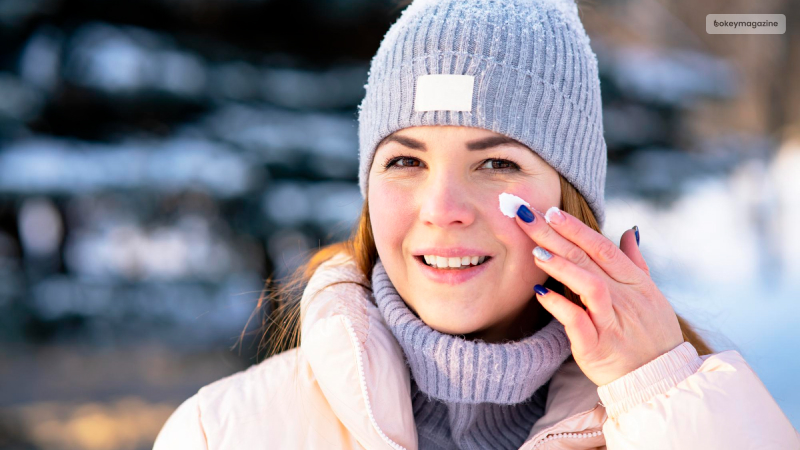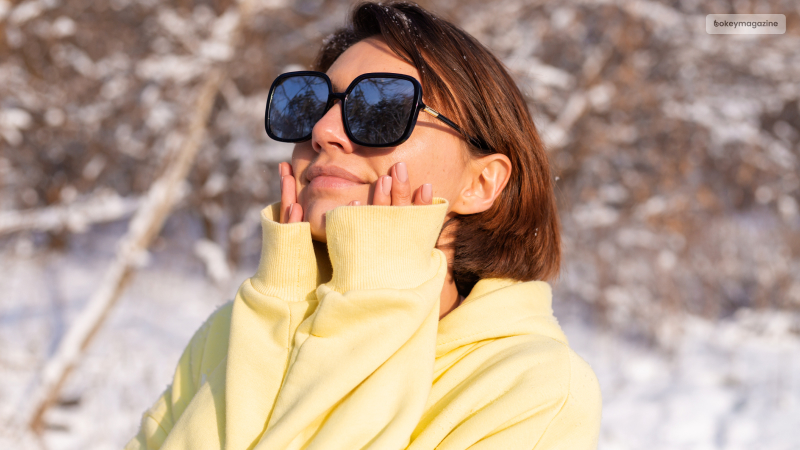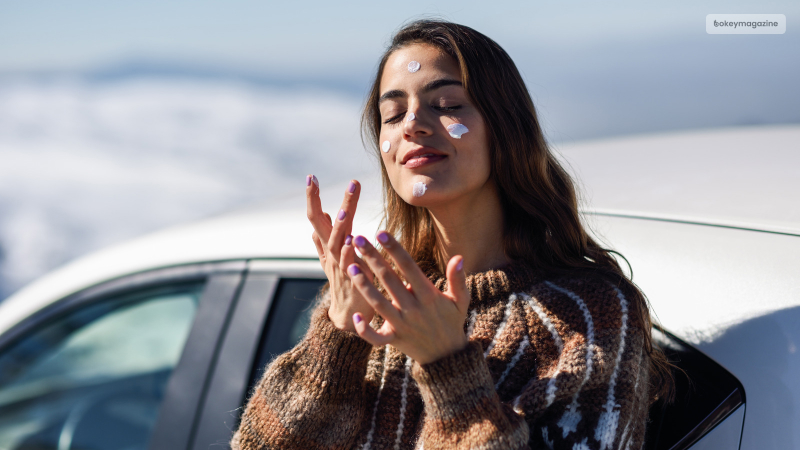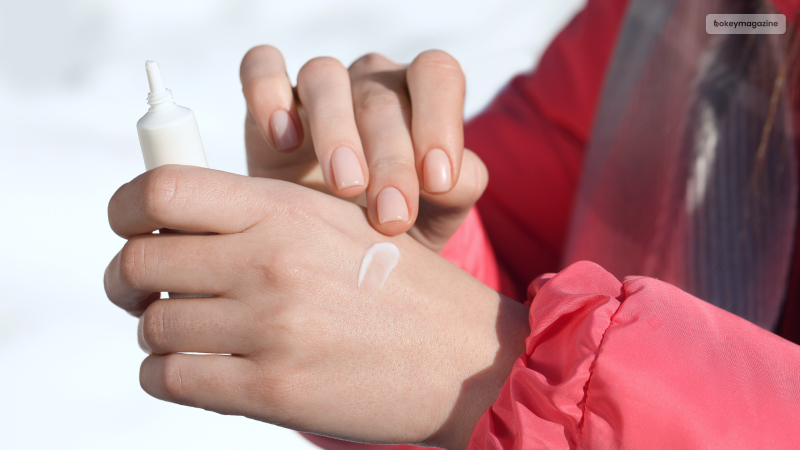
Is It Ok to Use Sunscreen in Winter?
Sunscreen is probably the first word that pops into your mind as soon as you hear the word, putting you directly on the beach or an island for a summer trip or going outdoors in the middle of a hot day.
Most people’s minds tag sunscreen with the prevention of damaging effects of UV rays on the skin, especially during warm months of the year.
What about the cold months, especially winter? But most people wear little to no sunscreen because of the cool, overcast weather and lesser strength of the sun during winter.
It is usually misconceived as well that sunscreen is not needed during winter. That being said, sunscreen is just as essential for winter as summer for the following reasons.
It discusses why sunblock becomes relevant as the temperatures dip during winter. It opens the dangers of UV exposure with the cooler months, proper skin protection, and reasons why sunblock-like a year-round regime-shouldn’t be left out of the winter skincare routine of any individual.
Sunscreen is vital for healthy skin, whether hitting the slopes, walking to work, or just those crisp winter winds.
Science of UV Radiation: Sun Exposure Doesn’t Stop in Winter

It is beneficial first to know that ultraviolet radiation damages our skin and does not evaporate when the sun seems to have finally gone away. Two types of UV radiation attack the skin: UVA (Long-wave Ultraviolet A Rays) and UVB (Short-wave Ultraviolet B Rays).
- UVA rays: These are the ones whose waves are longer, penetrate deeper into the skin, and are responsible for most damage to the skin, wrinkle formation, and skin cancers. It can pass through clouds, windows, and even a thin layer of snow.
- UVB rays: These are smaller and, in fact, cause sunburn. Indeed, the level of UVB is much higher in summer; however, it doesn’t become dormant during wintertime. Damage can also occur during this season, especially when the sun’s rays reflect off of snow or ice.
Most think that UV radiation is weakened or gone during the winter, and again, this could not be further from the truth. Even when the sun’s rays appear pale and less powerful compared to summer, the fact is that up to 80% of UV rays would have hit your skin regardless of how cloudy, cold, or snowy it may have been. This leaves skin more susceptible to UV radiation in winter months. So, sunscreen in winter is a must.
Winter Sun Exposure: A Stealth Danger
Here are a few factors that increase the UV exposure on your skin during the winter months, so check them out, if any of these apply to you.
1. Reflection from Snow
Fresh snow reflects up to 80% of UV rays, which means you’re not only exposed to UV radiation directly from the sun but also from the reflected rays bouncing off the snow’s surface. This phenomenon can increase your overall exposure, especially in high-altitude areas.
2. Higher Altitude, UV Exposure
People living at higher altitudes, as are skiers and snowboarders, are exposed to more UV dangers. The air is thinner at higher altitudes, and less air filtering works to screen out the UV radiation. For example, at 10,000 feet, you’re exposed to 30% more UV radiation than at sea level.
3. Cloud Cover and UV Penetration
Even on cloudy days, up to 80% of UV rays can penetrate the clouds and reach your skin. Just because the sky is overcast doesn’t mean you’re safe from sun damage. Winter clouds can sometimes increase UV exposure by scattering the rays across a wider area.
4. Exposure Time
The time spent outside is much higher with winter sports like skiing, snowboarding, and ice skating. The increased exposure to the enhanced UV radiation that accompanies snow, if proper protection is not applied, causes serious damage to the skin.
How to Apply Winter Sunscreen to Maintain Healthy Skin

Now that we’ve established that UV radiation is still a risk in the winter months, it’s important to understand why sunscreen in winter is crucial for protecting your skin and maintaining overall skin health.
1. Preventing Early Aging
UVA rays are constantly damaging your skin, making it age prematurely. Its constant exposure seems to degrade the two bases that comprise the elastin and collagen fibers, which are responsible for the rigidity and elasticity of the skin.
This is what results in wrinkles, fine lines, and sagging. Winter sun still emits enough UVA rays to contribute even on days when you don’t feel its warmth.
2. Low Potential of Causing Cancer Skin
It has records that indicate this is the most common type of skin cancer in the US, as backed by most reports from the American Academy of Dermatology. The risk factors that cause this type of skin cancer can be broadly classified into risk exposure caused by UV radiation.
Since many are careful and take care of their skin when they visit the seaside during the summer, negligence at the time of doing it in winter may be cumulative and thereby increase the risk of skin cancers later.
3. Prevention of Sunburn
Now, nothing prevents even winter sunburns as UVB prolongs it. Most people cannot help venturing into the outdoors in the snow because of the snow’s reflective surface, which scientists have proven heightens the intensity of UV radiation.
This can be excruciatingly painful. Long-term damage can be inflicted on the skin, and even the threat of cancer of the skin can now loom large.
4. Protection for Sensitive Skin
Most of the winter will consist of cold, dry air. This alone dries and irritates the skin. Sunscreen will offer protection beyond ultraviolet rays and occasionally helps your skin protect itself against windy and low-humidity conditions.
How to Choose the Right Sunscreen for Winter

When it comes to sunscreen during winter, you should apply roughly the same basic criteria as in the warmer months for choosing a good sunblock, though you want to look for a couple of things:
1. Broad-Spectrum Protection
Use a sunscreen that provides broad-spectrum protection or, in other words, protects against both UVA and UVB. UVA rays are constantly there and contribute to skin aging; the UVB rays are normally associated with burning but can also filter through at any season.
2. SPF Rating
There is an SPF rating for all the sunscreen brands available in the market, and the minimum recommended is an SPF rating of at least 30.
Remember that while high SPF ratings will provide more protection, SPF 30 will block around 97 percent of UVB rays which is pretty adequate to use in daily life. It is used with an SPF of 50 or above for a longer time spent in the snow or at higher altitudes.
3. Water-Resistant Formula
Even in the winter, water-resistant sunscreens are a good idea, especially when winter sports such as skiing, snowboarding, and ice skating are involved.
The exercise may cause excessive sweating, which could wash away the sunscreen more quickly. This means the formula will last longer and protect better.
4. Moisturizing Ingredients
When it is winter, sunblock dries out the skin, so consider going for a moisturizing ingredient when purchasing.
Glycerin hyaluronic acid and ceramides are good moisturizing ingredients because they retain moisture within the skin while giving it a hydrated look that protects it from the onslaught of the sun and the cold, dry air.
5. Physical vs. Chemical Sunscreen
Examples of active ingredients in physical sunscreens include zinc oxide or titanium dioxide, which operate on the skin’s surface but also physiologically by blocking UV rays.
Chemical sunscreen contains active ingredients like avobenzone or octinoxate that absorb UV radiation. Both are effective, but physical sunscreens may be more effective in the winter for more sensitive skin.
How to Apply Sunscreen in Winter
Applying sunscreen properly is the first step for maximum protection. Here’s how to apply sunscreen in winter for full protection during the season.
1. Apply Sunscreen Liberally
Apply it anywhere your skin will be exposed: face, neck, ears, hands. Never forget the ski nose and eyes; these areas are susceptible to burning when skiing.
2. Use regularly
Sunscreen washes off even when the temperature is frozen. Apply every two hours, more often if you are sweating or taking off your face using gloves and scarves. You’ll probably need to apply more often if you swim or ski.
3. Wear With Other Moisturizers
Apply sunscreen as part of your daily moisturizer. Apply a hydrating moisturizer first, allowing it to stay underneath your sunscreen and prevent it from drying out in the frigid weather that comes with winter.
Use moisturizing products that refer to themselves as “moisturizing” and have included sunscreens in their makeup.
Wrapping Up!
This means that it is acceptable to apply sunscreens in the winter. Of course, UV radiation does not know that it is winter; hence, the risk of photodamage, which may bring early aging process, burn, or cancer, can still be present there.
Sunscreen as part of your daily care, even over the years, will defend your skin against the harmful effects of UV radiation.
Winter should not be the time one goes out for skiing, dog walking, or errands, on the one hand, without finding any sunscreen at home. Get a broad-spectrum sunscreen with proper SPF, use it right, and repeat if necessary. You would thank your skin now and later.
You May Like To Read:



















Post Your Comment